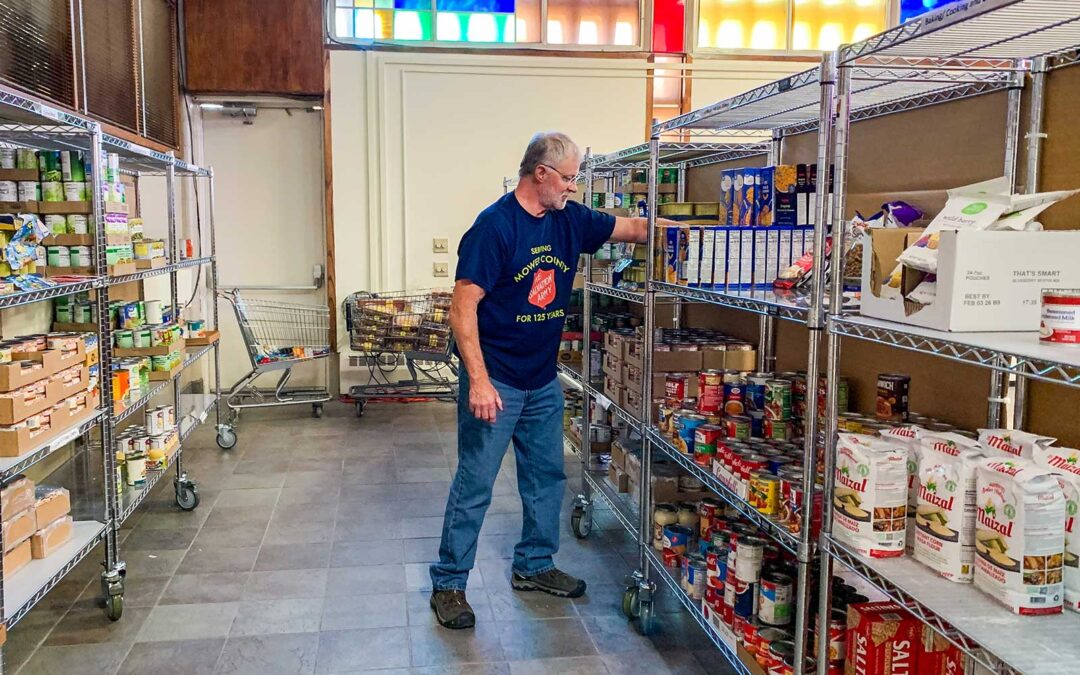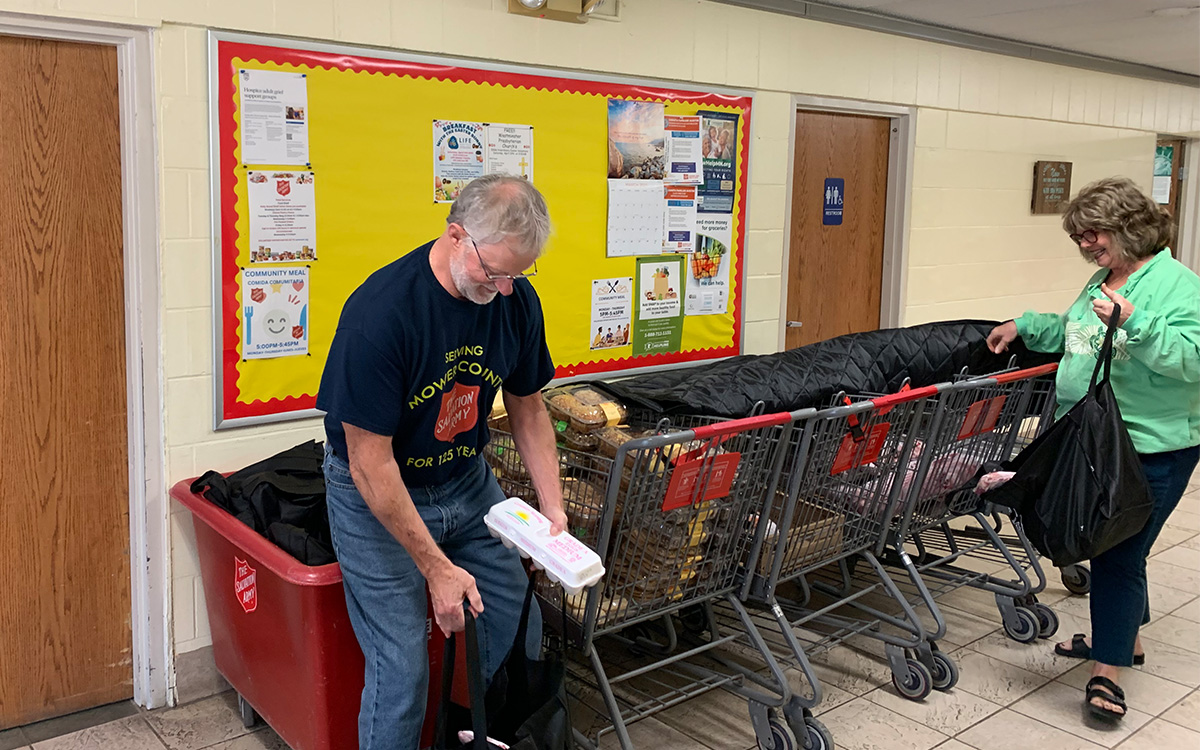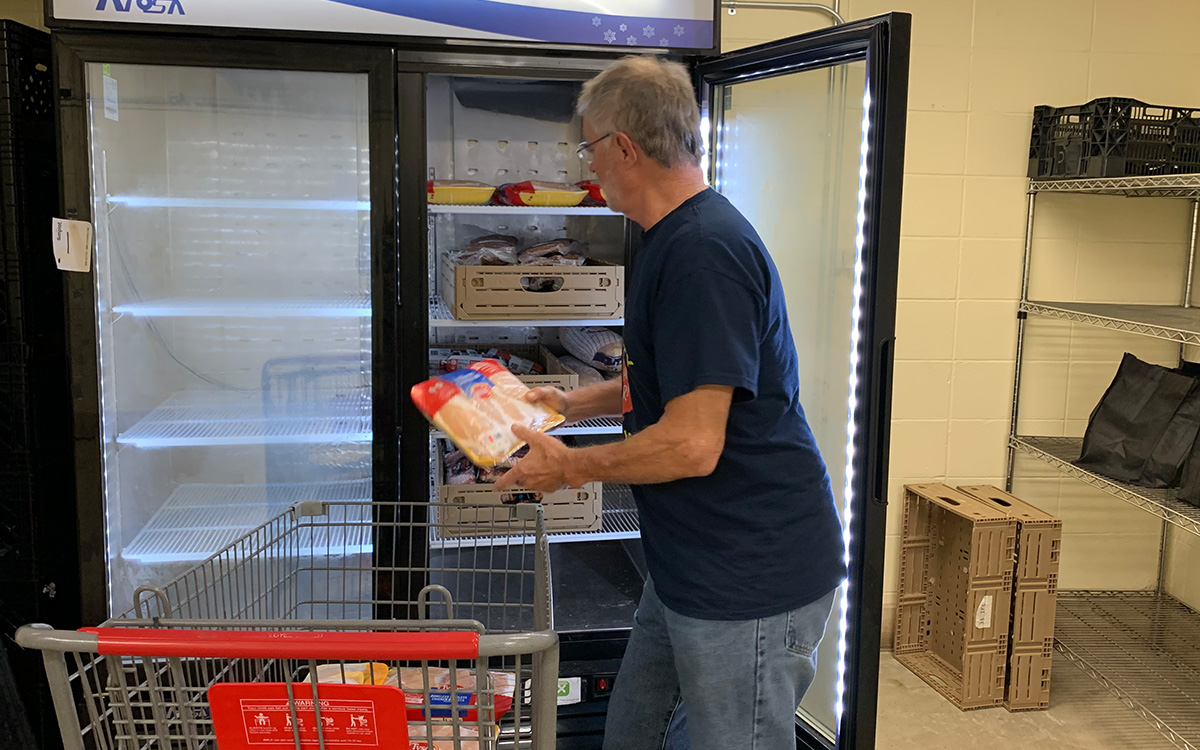By Ethan Watters
Bob Rosel’s journey from need to service
On Tuesday afternoons in Austin, Minnesota, Bob Rosel and his wife Madonna can be found at the Salvation Army’s food shelf, guiding visitors through rows of canned goods, produce and staples. They’ve come to know many of the regulars by name — like the elderly gentleman who arrives early each week, or the cheerful woman who never fails to remind Bob how lucky he is to have Madonna by his side. The Rosels move through the space with practiced ease, having found purpose in retirement — through service.
Bob Rosel’s path to this volunteer work was forged through his own experience with hardship four decades ago, when his family’s security vanished overnight.
“Broadcasting, in particular, is not a very stable job,” Rosel explains in his rich, measured voice, the kind that immediately betrays his background in radio. “As you get older, you can move around the country a lot. You can end up thinking you’re pretty secure and all of a sudden you’re not.”
The crisis point came in the early 1980s when Rosel, then a rock radio DJ in Lexington, Kentucky, was let go from his position. Suddenly unemployed in his early thirties with a wife and three young children, Rosel and Madonna decided to return to his hometown of Austin.
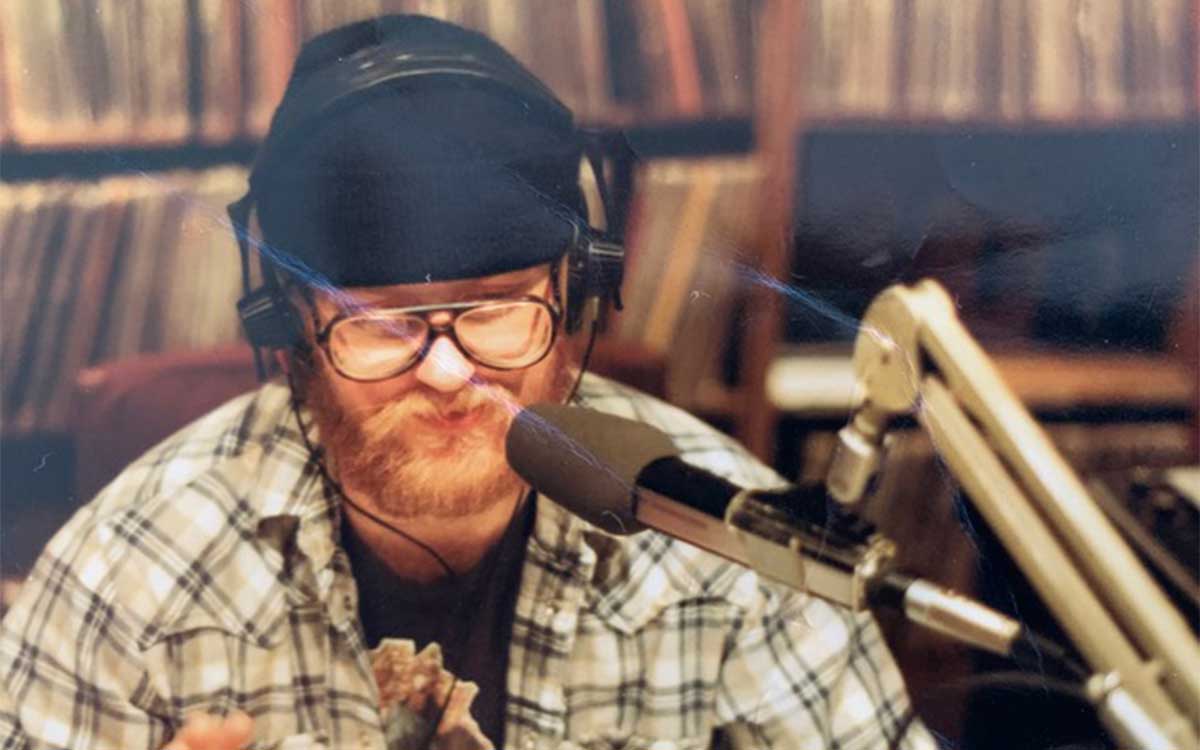
Bob Rosel DJing in Lexington, Kentucky
The timing couldn’t have been worse. Rosel arrived back home at a time when jobs were scarce and competition fierce. Despite his communications degree, he found himself repeatedly told he was “overqualified” for available positions — a judgment that ignored his desperate need for income.
“I would have taken any job because I needed a job,” Rosel recalls, “but there was also some truth in the fact that had I been able to find something better suited to my skills, I probably would have left pretty quickly.”
The family moved in with relatives, shuttling between Madonna’s parents’ home during the week and Bob’s parents’ on weekends. Though they had a roof over their heads, the loss of independence was crushing. “It’s not a proud moment in anybody’s life,” Rosel reflects. “You want to have a place of your own, but at the same time, I don’t want to sleep in the car if I’ve got somebody who’s willing to share a room in their home.”
To feed his family, Rosel embraced the gig economy of the era, taking on whatever work he could find — day-laboring in bean fields, baling hay, announcing at baseball games. They enrolled in the food assistance program now known as SNAP (then known as food stamps) and WIC. “I felt like I had an obligation to my family and myself to provide for them as best I could,” he says. “And if it couldn’t be through a job, then it was going to come through family members who could help or the social service organizations that can help.”
“We took on all of the help that was offered by family, the community and the government,” he says. “We were like most people, we never intended to be recipients forever.”
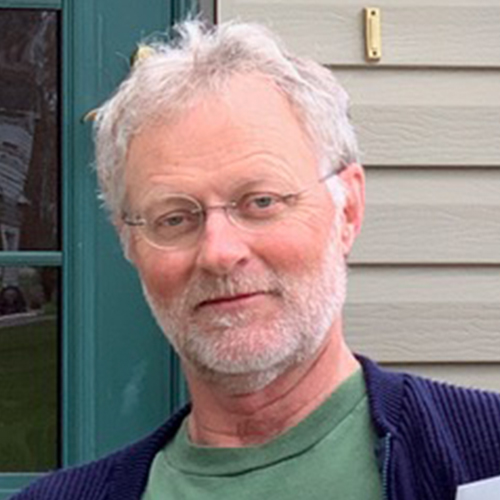
“People sometimes struggle with signing up for assistance because of stigma. But when your kids need medical care, food and a place to stay, it is okay to ask for help for a period of time.”
Bob Rosel, Salvation Army Volunteer
After about a year of piecing together this precarious existence, Rosel made a pivotal decision. He set aside his career in broadcasting and took classes in accounting and business while continuing to apply for jobs. Eventually, he secured a position at the post office in the small town of Leroy, Minnesota, driving there daily for minimal hours. After eighteen months, he transferred to Austin as a letter carrier — a job he would hold for the next 32 years.
“I made a conscious decision to do something that had nothing to do with my dream career,” Rosel explains. “I enjoyed my job in broadcasting. But I took a job as a mailman.” He adds with gentle self-deprecation, “That’s not exotic. You go to four years of school and you’ve got all these ideas about what you’re going to do with your life and your degree and everything. But sometimes you need to do what you need to do for your family.”
The position offered what his family needed most: stability, decent pay and benefits. No one got “fabulously wealthy,” but it was enough to build a life on solid ground.
Now, eight years into retirement, Rosel has transformed his personal life experience into a mission of service. His volunteer work began with the postal carriers’ annual Stamp Out Hunger food drive each May, which connected him to the Salvation Army’s food shelf. Later, he joined the Salvation Army’s advisory board and began volunteering alongside Madonna at both the food shelf and Ruby’s Pantry.
For a time, he also volunteered with Habitat for Humanity, helping build homes for families in situations not dissimilar to what his own had faced. Now, he’s also supporting the Hometown Food Security Project, a collaborative effort to coordinate services across Mower County, where he participates in the SNAP Action Team among other efforts.
As a letter carrier for over three decades, Rosel has a unique vantage point on Austin’s changing community. He delivered mail to “absolutely every mailbox in the city,” witnessing firsthand how people made ends meet and the struggles they faced. He observed the demographic shifts in the town — changing ethnicities, multiple families sharing single homes to afford housing costs — while recognizing the universal nature of basic human needs.
“The details of the story may be different,” he reflects, “but the basic needs of shelter, clothing, food, stable work — they’re all the same.”
When asked what he gets from volunteering, Rosel points to the inherent satisfaction of helping others. “There’s a payback to you too,” he says. “There’s a good feeling that comes from helping. And when you deal with people on a face-to-face basis, not from a distance, you can tell that it means something to them.”
Though he left his broadcasting career behind, Rosel’s communication skills haven’t gone to waste. He continues as PA announcer for local baseball tournaments and has become the de facto spokesperson for various community initiatives, including efforts to build pickleball courts in Austin. “Maybe that was the point of the whole thing after all,” he muses. “I’m now using my communication skills in a helpful way for other people.”
For Bob Rosel, the journey from recipient to provider of assistance wasn’t planned. But through it he gained a profound understanding of human vulnerability and resilience — and the difference that community support can make in a family’s life. Every Tuesday afternoon, as he walks another visitor through the food shelves, he embodies a simple truth: those who have been helped often become the most dedicated helpers.
As Rosel puts it simply, “I got help at those times in my life from family and from social organizations. It was time to give some of that help back to people going through the same kinds of challenges.”

Hometown Food Security Project
318 Main St N.
Austin, MN 55912
Get Involved!
If you’d like to volunteer with these efforts, let us know on this form.

